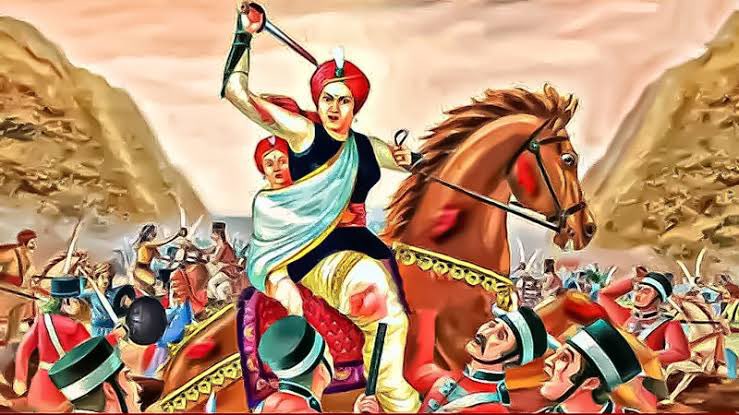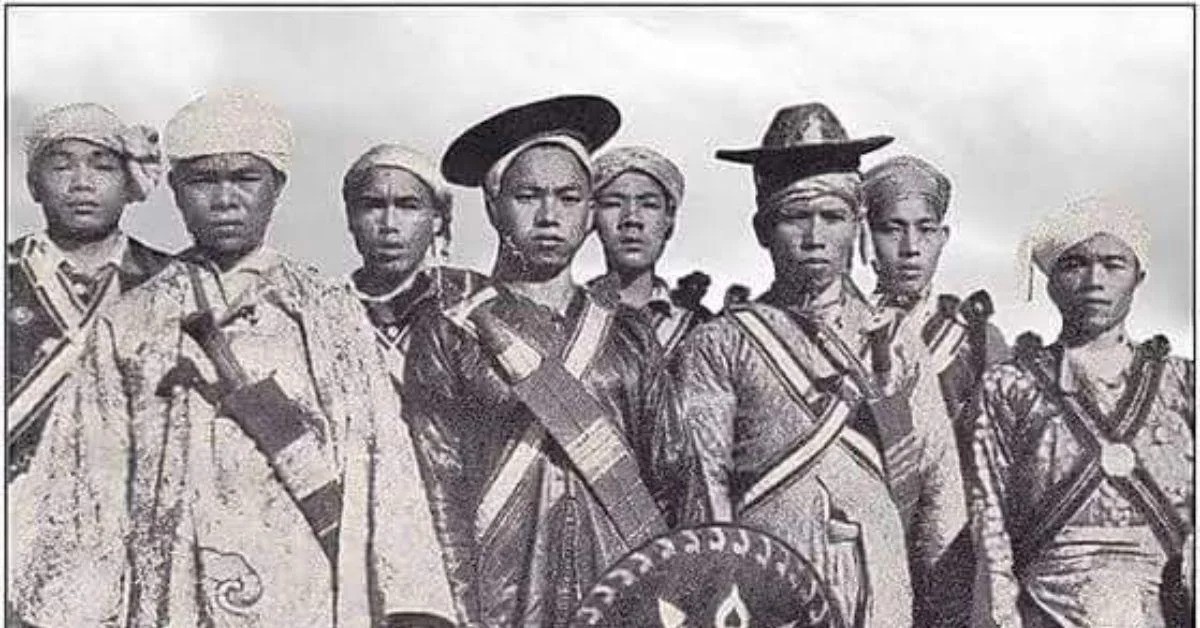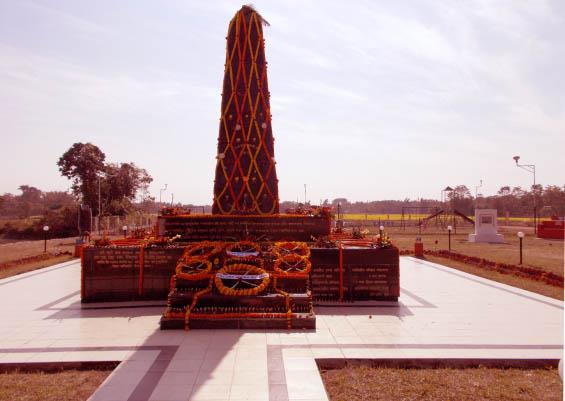By Bhupendra Kumar Sullere
June 18, 1858 — This date marks a glorified death anniversary in Indian history, bearing witness to the martyrdom of the first great heroine of India's freedom struggle. This day is not merely a remembrance of the valiant death of the Queen of Jhansi, Rani Lakshmibai, but a symbol of woman power, inner strength, and patriotism — a resolve that would never bow before any foreign power.
Childhood and Early Education: From Manu to Lakshmibai
Rani Lakshmibai was born on November 19, 1828, in Varanasi (Kashi) to a Marathi Brahmin family. Her original name was Manikarnika Tambe, affectionately called ‘Manu’. Her parents were devout and her father, Moropant Tambe, served in the Maratha court. From an early age, Manu was imbued with a spirit of independence, valor, and self-confidence.
She was raised on the land of Bundelkhand, where she mastered horse riding, swordsmanship, spear throwing, wrestling, and marksmanship. Thus, she came to represent an early form of “revolutionary feminine consciousness.”
Marriage and Royal Life: Becoming the Queen of Jhansi
At the age of 14, Manu was married to Gangadhar Rao, the King of Jhansi. After marriage, she became known as Rani Lakshmibai. Since the couple had no biological heir, they adopted a boy named Damodar Rao.
However, in 1853, King Gangadhar Rao passed away. The East India Company then tried to annex Jhansi under its Doctrine of Lapse policy. Rani Lakshmibai firmly refused and declared:
"I shall not give up my Jhansi."
This was not just the assertion of a queen's resolve; it was the clarion call of the awakened feminine spirit of India.
Leadership in the 1857 Rebellion: The First Torch of Swaraj
The revolt of 1857 was India’s first organized struggle for independence. While uprisings flared in Meerut, Delhi, Kanpur, and Lucknow, Rani Lakshmibai saw an opportunity — to challenge British rule.
She prepared Jhansi for war. She formed an all-women military unit including brave warriors like Jhalkari Bai, Sundar-Mundar, and Kashi Bai. She strategized with leaders like Peshwa Nana Saheb, Tatya Tope, and Rao Saheb to advance the rebellion.
The Battle of Jhansi and Unparalleled Bravery
In March 1858, the British under General Hugh Rose attacked Jhansi. Rani Lakshmibai directed the war from the fort’s ramparts. On one side, cannons were thundering; on the other, she rode her horse Badal, storming into battle like a lightning strike.
As Jhansi neared collapse, she tied her adopted son to her back and leapt from the fort — an image that became an eternal legend of Indian womanly valor.
The Final Battle and Martyrdom: Immortality on the Battlefield of Kotah
After leaving Jhansi, Rani Lakshmibai joined Tatya Tope in Kalpi and later in Gwalior. After reclaiming Gwalior, her final battle occurred on June 17–18, 1858, at Kotah-ki-Serai. Disguised as a man, she fought valiantly until she achieved martyrdom.
Even her enemy, General Hugh Rose, praised her saying:
"The bravest and the most dangerous of all Indian leaders."
Cultural Legacy and Popular Memory of Rani Lakshmibai
Rani Lakshmibai is not merely a character in history books — she is the eternal voice of India’s cultural consciousness. Folk poets immortalized her as a legendary heroine:
"Khoob ladi mardani, woh toh Jhansi wali Rani thi..."
(She fought valiantly like a man — she was the Queen of Jhansi.)
Her lf inspires not only women, but every Indian who values freedom and self-respect.
Feminist Discourse and Rani Lakshmibai in the Modern Context
Rani Lakshmibai marks that historic turning point in Indian feminine consciousness where a woman is not just a symbol of compassion, but of revolution. In today’s age of gender empowerment, her life teaches us that a woman can lead, strategize, and sacrifice.
Death Anniversary: A Day of National Resolve
The 18th of June is not merely a memorial to one martyr’s sacrifice — it is a national day of remembrance and resolve. It reminds us that India’s freedom was not won through mere speeches, but through the ultimate sacrifices of brave daughters of the soil.
For the youth of today, Rani Lakshmibai’s message remains timeless:
"Trust your inner strength, resist injustice, and fight till the end for the honor of your nation."
On her death anniversary, we offer our heartfelt tributes to Rani Lakshmibai. Her life is an indelible symbol of Indian womanhood, self-respect, and freedom.






